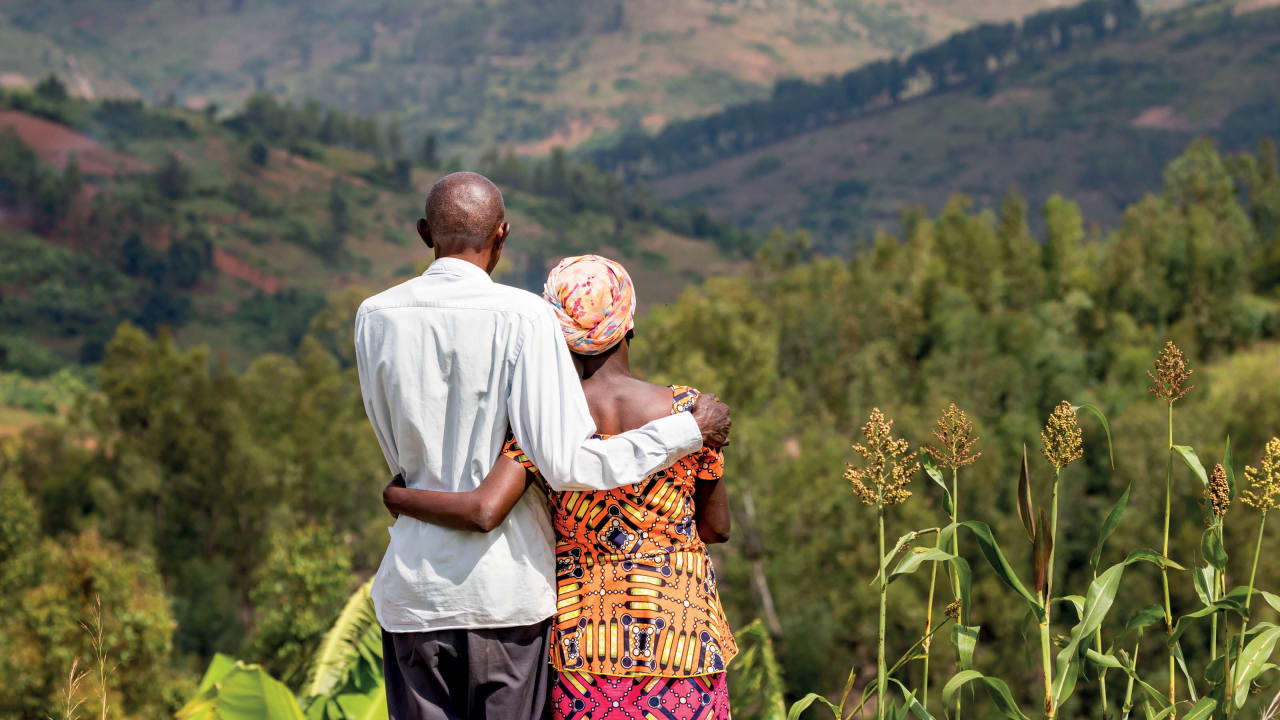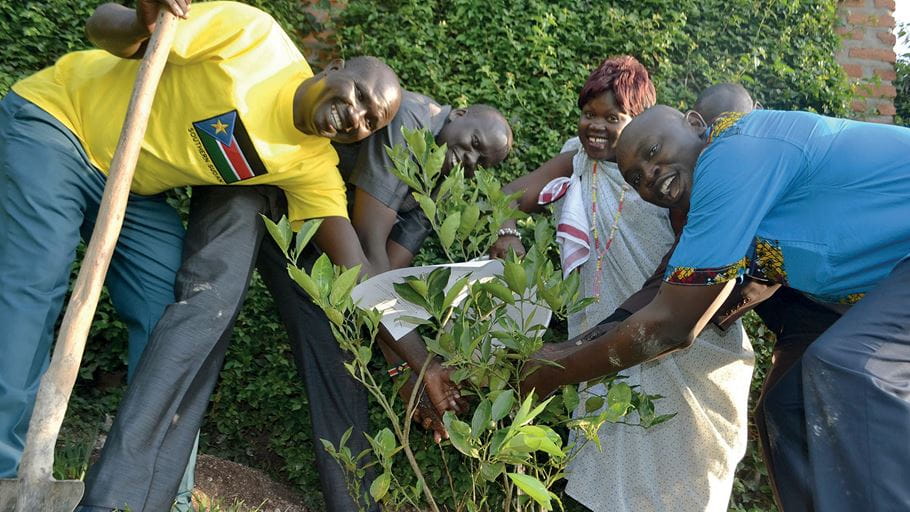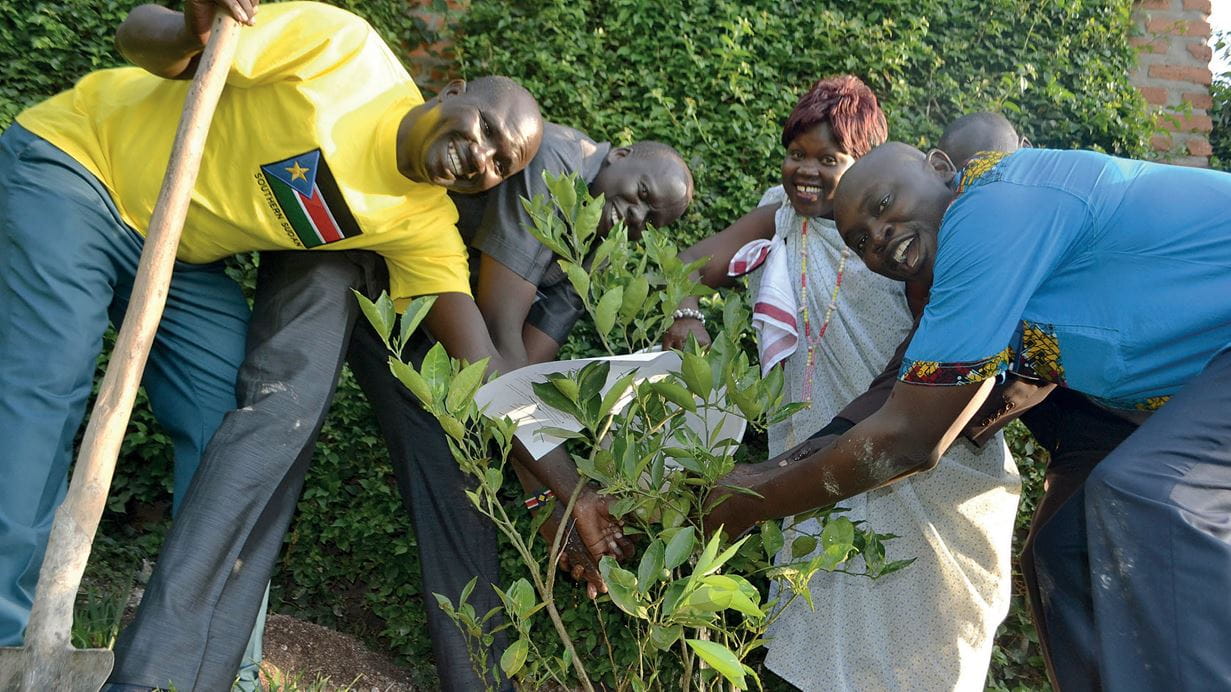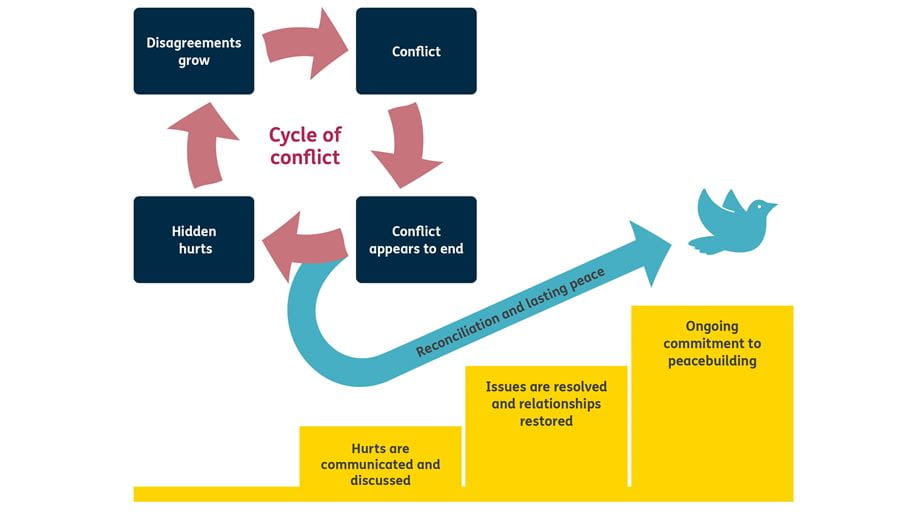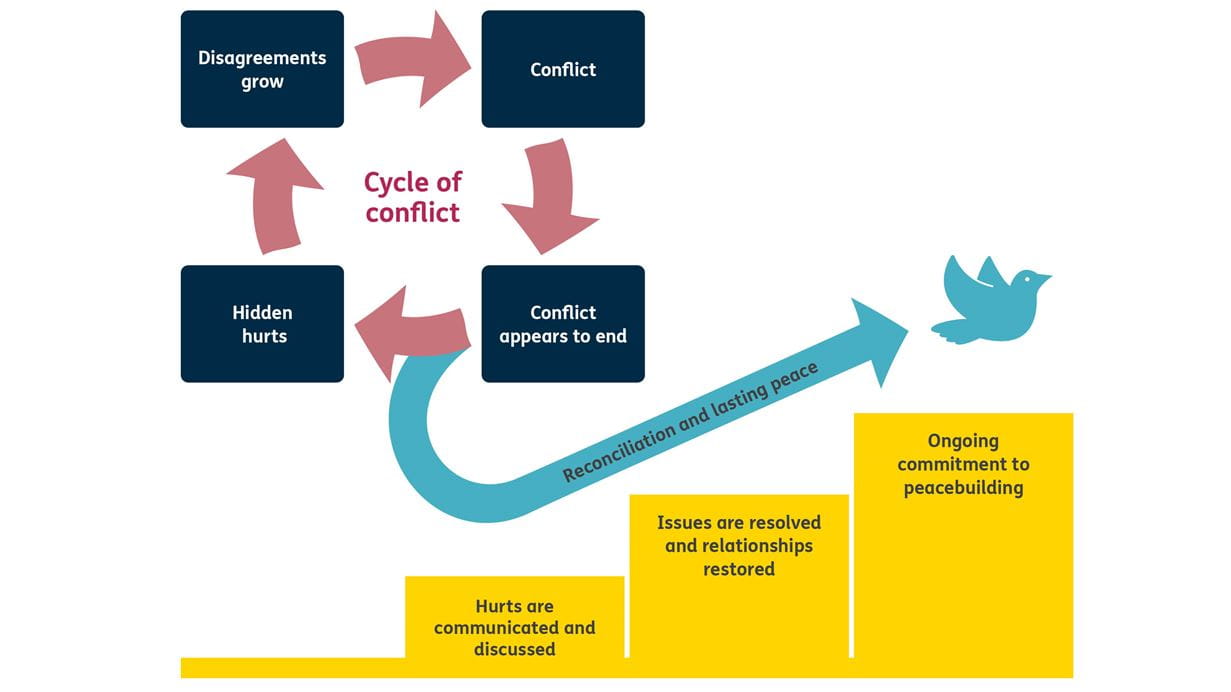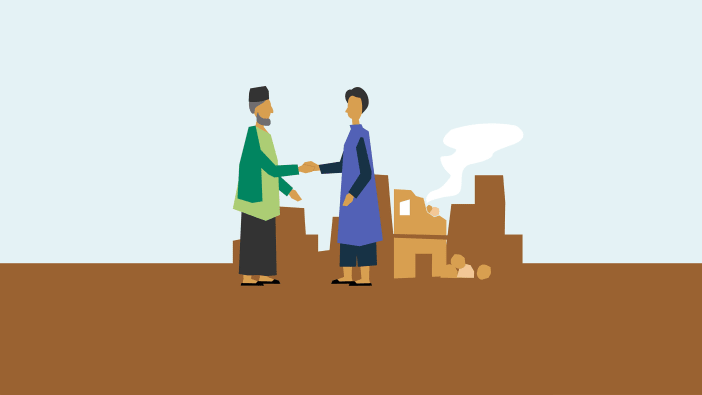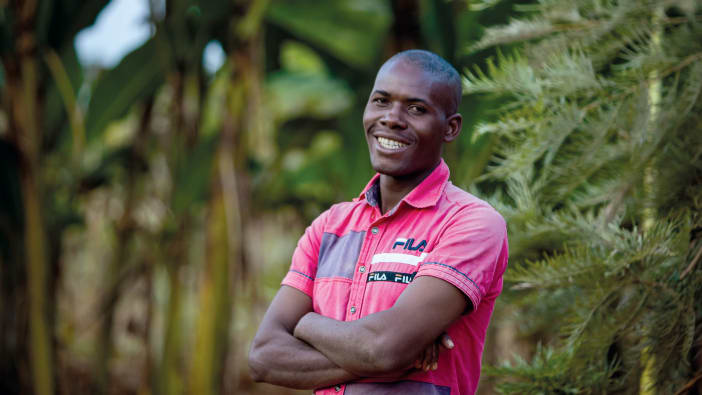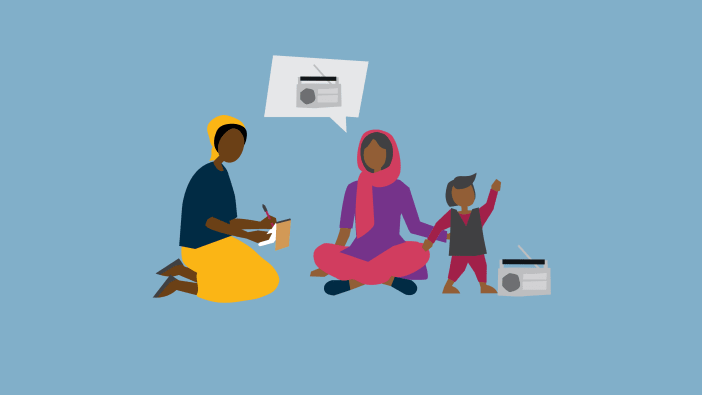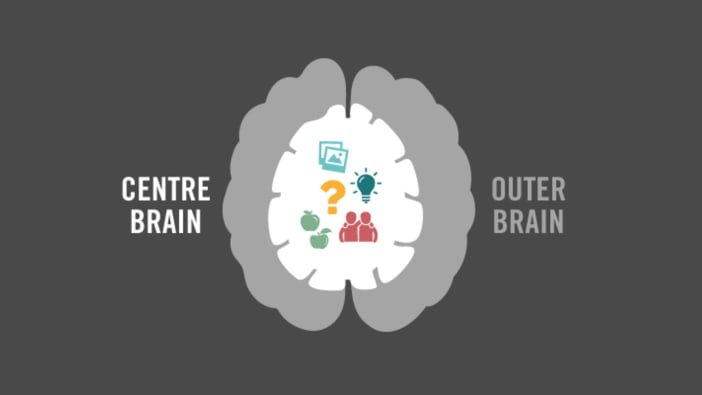Small disagreements are part of everyday life, and most of the time they can be resolved quickly and effectively by talking things through, apologising and moving on.
However, if communication breaks down, a small disagreement – in a family, community, nation or region – can quickly grow into a much bigger problem.
For example, imagine two people are standing together and looking at a stream that has less water in it than usual. They are having a conversation about what to do. One person wants to divert the water onto crops, but the other thinks it should be used to power a watermill. At this point, if they work together it is likely that they will be able to find a solution that suits them both.
But they start to argue and things quickly become personal. No longer are they standing side by side, focusing on resolving the problem. Instead, they are seeing each other as the problem. Their argument becomes louder, they say unkind things to each other, and they start to bring up disagreements from the past. It becomes increasingly difficult for them to find a way out of the situation.
Frustrated and angry, they stop talking to each other and instead talk about each other, surrounding themselves with people who agree with their point of view. The original problem then gets lost in a series of negative actions and responses: one group digs channels to divert the water onto crops; the other group breaks the channels so the water can flow to the mill; the first group damages the mill; the second group destroys the crops; and so the conflict grows.
During this process of retaliation there is less and less direct communication and the facts become harder to recognise. Rumour and misinformation thrive, trust disappears and the level of violence increases.


